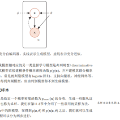Generative modelling is an important unsupervised task in machine learning. In this work, we study a hybrid quantum-classical approach to this task, based on the use of a quantum circuit Born machine. In particular, we consider training a quantum circuit Born machine using $f$-divergences. We first discuss the adversarial framework for generative modelling, which enables the estimation of any $f$-divergence in the near term. Based on this capability, we introduce two heuristics which demonstrably improve the training of the Born machine. The first is based on $f$-divergence switching during training. The second introduces locality to the divergence, a strategy which has proved important in similar applications in terms of mitigating barren plateaus. Finally, we discuss the long-term implications of quantum devices for computing $f$-divergences, including algorithms which provide quadratic speedups to their estimation. In particular, we generalise existing algorithms for estimating the Kullback-Leibler divergence and the total variation distance to obtain a fault-tolerant quantum algorithm for estimating another $f$-divergence, namely, the Pearson divergence.
翻译:创制模型是机器学习中一项重要而不受监督的任务。 在这项工作中,我们研究了一种混合量子古典方法,其基础是使用量子电路诞生机器。特别是,我们考虑用美元波动力来培训量子电路诞生机器。我们首先讨论基因模型的对抗性框架,这种框架可以在不久的将来估算任何美元波动力。基于这一能力,我们引入了两种能明显改善生机培训的超常法。第一种是基于培训期间的美元差异转换。第二种是引入差异地差,这一战略已证明在缓解低温高原的类似应用中很重要。最后,我们讨论了计算美元波动力的量子装置的长期影响,包括提供四价加速估算的算法。特别是,我们概括了用于估算Kullback-利伯尔差异和总变异距离的现有算法,以获得一个错误抗误差量量算法,以估算另一个差异,即Prence。




